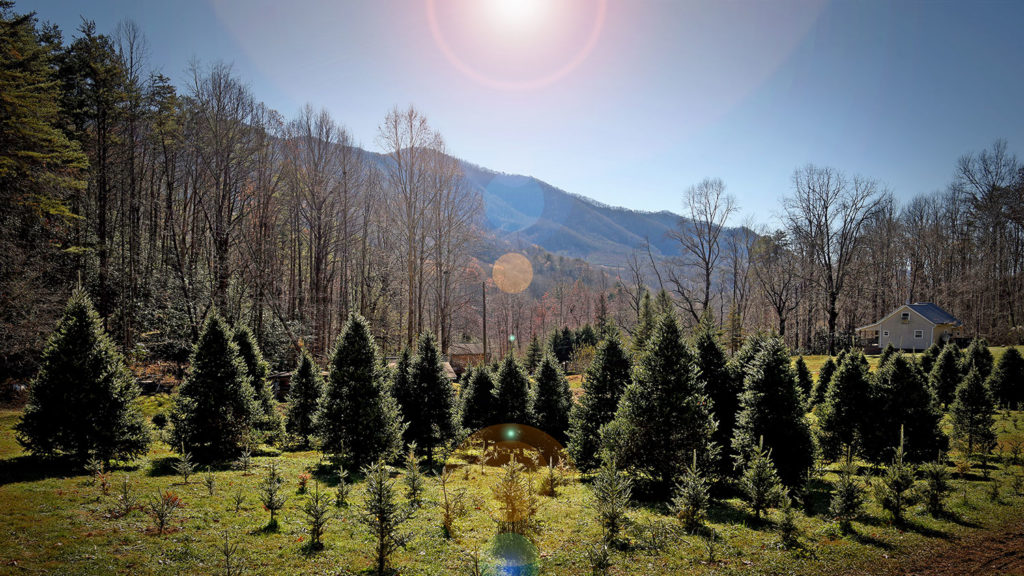NC State Helps Homegrown Christmas Tree Farm
go.ncsu.edu/readext?567972
en Español / em Português
El inglés es el idioma de control de esta página. En la medida en que haya algún conflicto entre la traducción al inglés y la traducción, el inglés prevalece.
Al hacer clic en el enlace de traducción se activa un servicio de traducción gratuito para convertir la página al español. Al igual que con cualquier traducción por Internet, la conversión no es sensible al contexto y puede que no traduzca el texto en su significado original. NC State Extension no garantiza la exactitud del texto traducido. Por favor, tenga en cuenta que algunas aplicaciones y/o servicios pueden no funcionar como se espera cuando se traducen.
Português
Inglês é o idioma de controle desta página. Na medida que haja algum conflito entre o texto original em Inglês e a tradução, o Inglês prevalece.
Ao clicar no link de tradução, um serviço gratuito de tradução será ativado para converter a página para o Português. Como em qualquer tradução pela internet, a conversão não é sensivel ao contexto e pode não ocorrer a tradução para o significado orginal. O serviço de Extensão da Carolina do Norte (NC State Extension) não garante a exatidão do texto traduzido. Por favor, observe que algumas funções ou serviços podem não funcionar como esperado após a tradução.
English
English is the controlling language of this page. To the extent there is any conflict between the English text and the translation, English controls.
Clicking on the translation link activates a free translation service to convert the page to Spanish. As with any Internet translation, the conversion is not context-sensitive and may not translate the text to its original meaning. NC State Extension does not guarantee the accuracy of the translated text. Please note that some applications and/or services may not function as expected when translated.
Collapse ▲Tim Peeler | NC State University
Tucked on a cleared hillside deep in Cherokee County, a row of five trees stands perfectly aligned next to a modest family home. They are located on a one-lane dirt road that, in reality, is just five ascending driveways connected by mailboxes.
Dug up from a nearby forest, the trees mean everything to Ricky and Judi Postell, owners of Fir Heaven’s Sake Christmas tree farm, a family choose-and-cut business in Topton, less than a mile off North Carolina Highway 74.
“Those trees?” Ricky Postell says, pointing towards a small gift shop. “They are our Christmas trees through the years. We planted them after the holidays and they were the earliest ones we ever planted.

“Growing Christmas trees is something I’ve always wanted to do.”
Postell’s hillside farm, with about 1,200 total trees, is a world away from NC State’s campus in the heart of Raleigh. Cherokee is North Carolina’s westernmost county and Topton is some 330 miles away, about the same distance as Philadelphia, Jacksonville, Florida, or Columbus, Ohio.
And it’s modest in size, at least compared to some of the larger farms on the 250-mile Blue Ridge Parkway corridor that supplies — with the help of NC State College of Natural Resources researchers, geneticists and College of Agriculture and Life Sciences extension agents — some 15 percent of the nation’s Christmas trees. Way up in Ashe County, a curvy five-hour drive away from Postell’s small farm, there are in excess of 3 million Fraser firs, more Christmas trees than in any other county in the country.
More than 99 percent of all Christmas trees in North Carolina are Frasers, a native species that grows at an elevation of 1,500 feet or higher in Great Smoky and Appalachian mountains. Coveted for their fragrance and the hardiness of their needles, most Fraser firs now farmed in North Carolina have been genetically enhanced by research done at NC State that extends and heightens those properties, according to professor John Frampton.
Continue reading the entire article.


